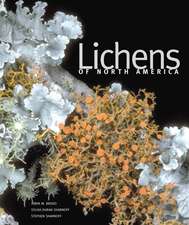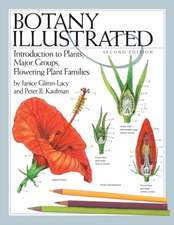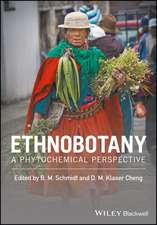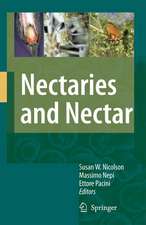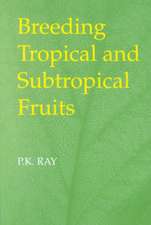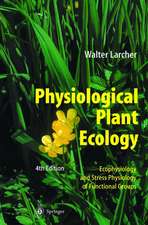Weed Biology and Management
Editat de Inderjiten Limba Engleză Hardback – 29 feb 2004
| Toate formatele și edițiile | Preț | Express |
|---|---|---|
| Paperback (1) | 1058.44 lei 38-44 zile | |
| SPRINGER NETHERLANDS – 25 dec 2010 | 1058.44 lei 38-44 zile | |
| Hardback (1) | 1243.29 lei 6-8 săpt. | |
| SPRINGER NETHERLANDS – 29 feb 2004 | 1243.29 lei 6-8 săpt. |
Preț: 1243.29 lei
Preț vechi: 1516.21 lei
-18% Nou
Puncte Express: 1865
Preț estimativ în valută:
237.90€ • 249.06$ • 196.85£
237.90€ • 249.06$ • 196.85£
Carte tipărită la comandă
Livrare economică 05-19 aprilie
Preluare comenzi: 021 569.72.76
Specificații
ISBN-13: 9781402017612
ISBN-10: 1402017618
Pagini: 568
Ilustrații: XII, 553 p. 75 illus., 14 illus. in color.
Dimensiuni: 170 x 250 x 40 mm
Greutate: 1.18 kg
Ediția:2004
Editura: SPRINGER NETHERLANDS
Colecția Springer
Locul publicării:Dordrecht, Netherlands
ISBN-10: 1402017618
Pagini: 568
Ilustrații: XII, 553 p. 75 illus., 14 illus. in color.
Dimensiuni: 170 x 250 x 40 mm
Greutate: 1.18 kg
Ediția:2004
Editura: SPRINGER NETHERLANDS
Colecția Springer
Locul publicării:Dordrecht, Netherlands
Public țintă
ResearchCuprins
1 Invasive Plants: Ecology and Management.- 2 Invasive Ecology of Weeds in Agricultural Systems.- 3 Crop-Associated Weeds: The Strategy for Adaptation.- 4 Evolutionary Biology of the Foxtail (Setaria) Species-Group.- 5 Aquatic Weeds.- 6 Agroecological Benefits from Weeds.- 7 Rising Carbon Dioxide and Weed Ecology.- 8 Molecular Aspects of Host-Parasite Interactions: Opportunities for Engineering Resistance to Parasitic Weeds.- 9 Altered Herbicide Target Sites: Implications for Herbicide-Resistant Weed Management.- 10 Herbicide Resistance: Moving Beyond Simple explanations.- 11 Fate and Behavior of Herbicides in Tropical Soils.- 12 Diversified Weed Management Systems.- 13 Soil-Improving Practices for Ecological Weed Management.- 14 Weed Management in Low-External-Input and Organic Farming Systems.- 15 Improvement of Allelopathy in Crops for Weed Management — Possibilities, Breeding, Strategies and Tools.- 16 Weed Management under No-Tillage Systems in Tropical Regions.- 17 Soil Solarization: An eco-friendly Approach for Weed Management.- 18 Rationale, Approach and Adoption of Integrated Weed Management.- 19 Adjuvants: Tools for Enhancing Herbicide Performance.- 20 Alternate Weed Management Strategies for Landscape and Turf Settings.- 21 Biological Control of Parasitic Weeds with Plant Pathogens.- 22 Recent Approaches to Orobanche Management; A Review.- 23 A Review on Weed Control in Sugar Beet: From Tolerance Zero to Period Threshold.- 24 Control of Problem Weeds and Net Returns with Herbicide Programs in Peanut (Arachis hypogaea L).- 25 Competitiveness of Rice Cultivars as a Tool for Crop-Based Weed Management.- Author Index.
Recenzii
From the reviews:
"Weeds have long been a concern of agriculturalists, and they continue to challenge weed scientists and farmers. … In 25 chapters, this book deals with such diverse topics as the evaluation of allelopathy, enhancing allelopathy through crop improvement, the beneficial effects of weeds under selected conditions, unique approaches to the study of host-parasite relationships within parasitic weeds, and the examination of ‘period thresholds’ as opposed to ‘zero tolerance’ of weeds. … Summing Up: Recommended. Upper-level undergraduates and above; general readers." (R. Frederiksen, CHOICE, Vol. 42 (5), 2005)
"Weeds have long been a concern of agriculturalists, and they continue to challenge weed scientists and farmers. … In 25 chapters, this book deals with such diverse topics as the evaluation of allelopathy, enhancing allelopathy through crop improvement, the beneficial effects of weeds under selected conditions, unique approaches to the study of host-parasite relationships within parasitic weeds, and the examination of ‘period thresholds’ as opposed to ‘zero tolerance’ of weeds. … Summing Up: Recommended. Upper-level undergraduates and above; general readers." (R. Frederiksen, CHOICE, Vol. 42 (5), 2005)

